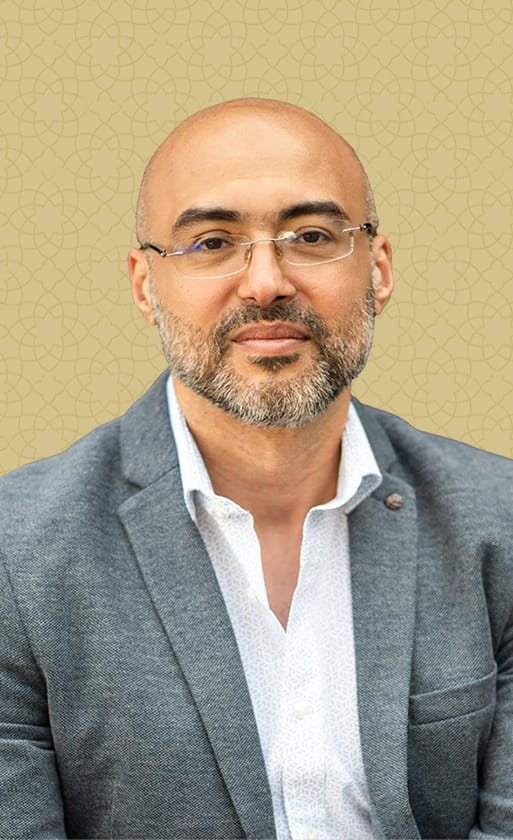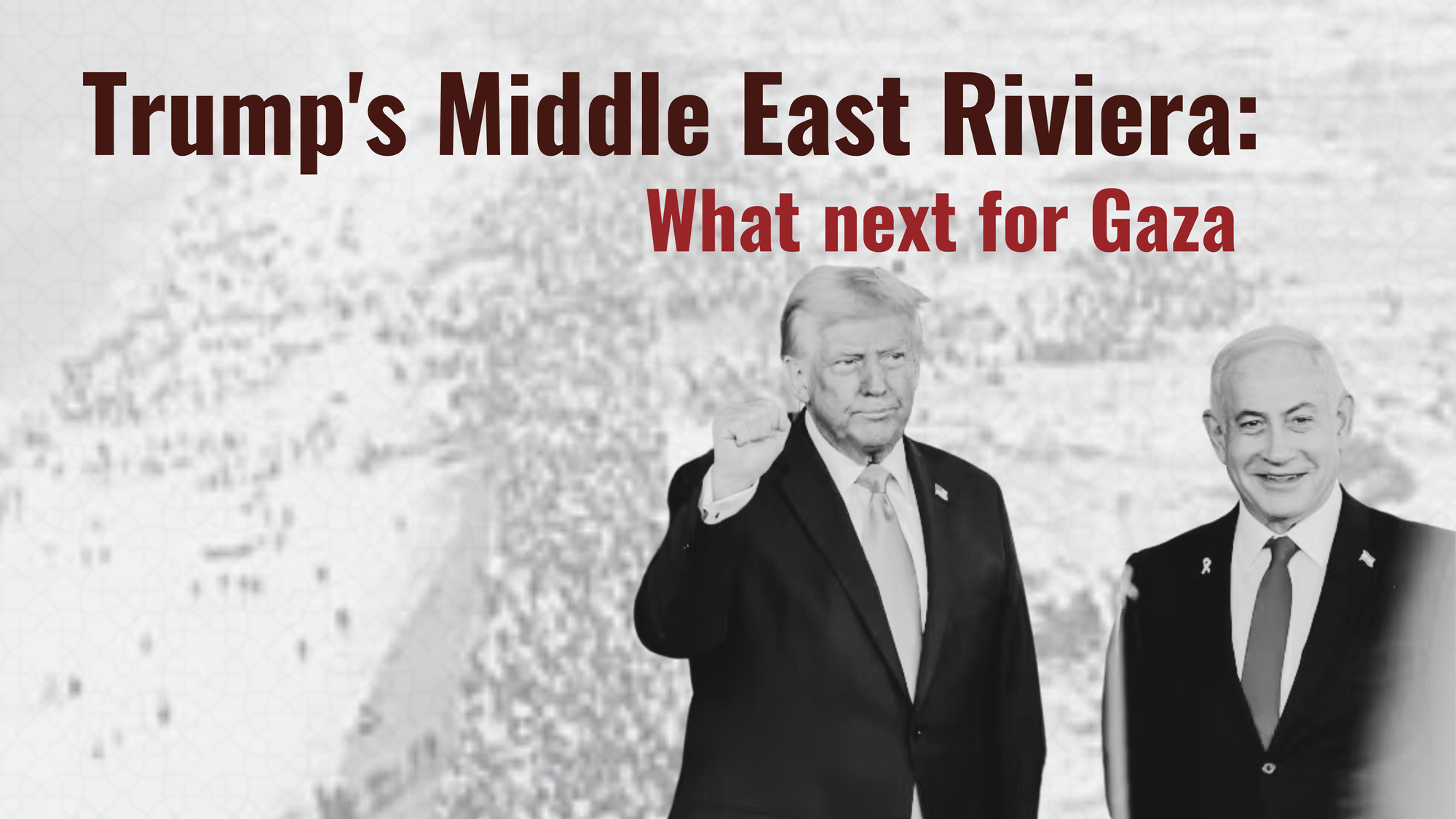This week US President Donald Trump said that he plans to take over Gaza, forcibly removing its Palestinian population to make way for a US-controlled “Riviera of the Middle East”. The Geneva Conventions, which both the US and Israel have ratified, prohibit the forced displacement of civilians, especially during armed conflict. What Trump is proposing is a war crime under international law.
This plan has no real chance of happening, but does have the potential to jeopardise the current ceasefire and hostage deal, and further destabilise the region. One of the fundamental reasons is that the alliance which enabled the Middle East policy of his previous presidency no longer exists.
Arab Regimes: Interests Over Ideology
Arab regimes have never sided with Palestine or Israel out of ideology. While their populations are overwhelmingly pro-Palestinian, these dictatorships act based on self-interest. They have normalized relations with Israel, fought wars against it, or remained neutral based on what best serves their security at the time. The notion that they always follow America’s lead or are ideologically committed to either side is false; their decisions are pragmatic.
Many are overreacting to the news - some assuming Arab regimes will capitulate, others praising their rejection of Trump's plan as principled resistance. In reality, their response is driven by survival and strategic calculus, just as it has always been.
Trump’s first term saw the Abraham Accords, in which the UAE, Bahrain, and Morocco normalized ties with Israel, bypassing the traditional land-for-peace framework - in which Arab states recognise and make peace with Israel in exchange for a Palestinian state. Saudi Arabia tacitly supported this, with Saudi Arabia’s Crown Prince Mohammed Bin Salman (MBS) meeting Netanyahu multiple times.
At the time, aligning with Israel was pragmatic: The region had just emerged from the Arab Spring, many parts of it were reeling from destruction left by the rise and fall of ISIS and Syria’s Bashar al-Assad’s apparent - but ultimately temporary - victory, an ascendant Iran-backed militant axis, and Russia’s emergence as a regional power.
Key players acted based on self-interest - MBS wanted to consolidate power, the UAE and Bahrain sought security from Iran, and Morocco aimed to solidify its claim over Western Sahara. Those conditions no longer exist in 2025.
Abrahamic Accords 2.0?
In 2017, MBS was not even Crown Prince yet - he was second in line. He used the Trump years to become Saudi Arabia’s undisputed leader, and did whatever was necessary to secure power. But in 2025 MBS is already in control; he has no need to risk inviting instability by aligning with Netanyahu, and stability is now more valuable than diplomatic gambits.
Iran, a key concern for gulf states in 2017, is no longer the same threat. This shift is due to several factors, including the fall of Assad and, ironically, Israel's own successes against Hezbollah which have diminished Iran's immediate influence in the region.
Saudi-Iran ties are at their best in years - shortly after October 7th, the two sides held talks in Riyadh. Saudi Arabia distanced itself from Israeli actions and wanted to avoid regional war. Iran obliged. Notably, since October 7th, there have been zero Houthi attacks on Saudi Arabia - the longest such pause since 2015. With Iran no longer the regional “arsonist,” Gulf states no longer need Israel as a counterweight to it.
Jordan and Egypt: The Biggest Roadblocks
Trump’s proposal faces overwhelming resistance in Jordan and Egypt. Palestinians, who have spent a century resisting occupation and displacement, are among the region’s most politically active and radical demographics. The plan is to relocate 2.5 million of them into Egypt - a country of over 100 million predominantly young, pro-Palestinian citizens - or Jordan, where 70 to 80 percent of the population is of Palestinian origin. Jordan’s regime nearly collapsed in the early 1970s due to an influx of Palestinian militants, highlighting the potential instability such a move could provoke.
This would be not just a refugee crisis but a fundamental destabilisation of both countries, potentially leading to the collapse of their regimes. No amount of money or bullying can make up for this. And if Israel expelled Gaza’s population, the 3 million Palestinians in the West Bank would be next. Jordan and Egypt understand this.
If either country collapsed, it wouldn’t end there - it would trigger a broader regional crisis.
Is Trump Serious?
Former US President Joe Biden’s administration also entertained ideas of population transfer but used softer language, suggesting "temporary relocations.” Trump's explicit rhetoric has made it impossible for Arab leaders to even pretend to work with him. His bluntness removes any diplomatic cover for negotiations. Allies can be asked to do many things, but not to commit regime suicide.
Many wonder if Trump is even serious. The mere fact that we have to ask is alarming. But it is doubtful that Trump truly intends to follow through with this proposal - it is nothing more than political theatre.
The logistics are impossible. Even if Jordan and Egypt somehow agreed, who would physically remove 2.5 million Palestinians from Gaza? It is pure fantasy.
In 2025, Trump’s real project is securing his grip over the US government, as his early actions have shown. He is unlikely to invest much political capital elsewhere such as foreign policy. Unlike in 2017, the power dynamic between Trump and Netanyahu has reversed. Trump already pressured Netanyahu into a ceasefire earlier this year, and in 2024 shared a video calling Netanyahu a "deep dark son of a bitch." Their relationship is strained. Trump no longer needs Netanyahu’s support to achieve his goals; Netanyahu, facing potential political collapse, does need Trump’s.
Regardless of Trump's seriousness, his comments mark the end of even the pretence of a two-state solution. The US has now fully aligned itself with the destruction of Palestinians as a national group. This isolates the US and Israel diplomatically, who now stand alone against global consensus.
The most immediate consequence is likely the collapse of the hostage deal and a resumption of war. Netanyahu needs the war - his domestic political survival depends on it.
Israel’s Endgame: Ethnic Cleansing
Israel’s strategic approach has shifted from ‘security through apartheid’ to apartheid no longer being enough. Ethnic cleansing is no longer a side effect - it is the plan. The goal is to make Gaza unlivable so its people leave voluntarily. If they don’t, Israel plans to push them out later.
The next phase of war will be even more brutal. Israel's endgame - ethnic cleansing - is now explicit. We have long argued that that was always the plan, but now Israel has given up on hiding it. The illusion of peace talks or a political resolution is gone.
The war will force strategic recalculations. Hamas' ability to sustain another round is a question - although according to US Secretary of State Antony Blinken, it has already restaffed its battalions, and its tunnel network is largely intact. Meanwhile, Israel faces serious questions about its capacity to sustain an open-ended war with no clear exit. War fatigue in Israel is real and well-documented.
If Israel accelerates its ethnic cleansing efforts, Jordan and Egypt may be forced to change their policies, potentially reversing their alignment with Israel. In extreme scenarios, they could even re-emerge as frontline resistance states.
A key difference between 2017 and 2025 is the shift in Israel’s collective psyche. Israel is now in a zero-sum mindset: its existence requires threatening the security of everyone else in the region. This marks a dangerous new phase.
The next three years will be pivotal for the Palestinians - they must survive them. By 2028, both Israel and the US will likely be more fragile, isolated, and unstable. As Trump hastens America’s decline and Netanyahu deepens Israel’s vulnerabilities, the balance of power in the region may shift in ways that once seemed unimaginable.

Iyad is co-founder of Kawaakibi Foundation and author of The Middle East Crisis Factory.


